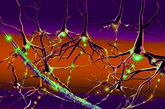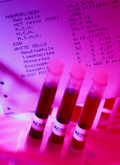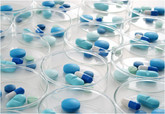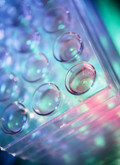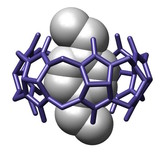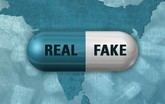Non‐Biological Complex Drugs/
Research
Biosimilars and follow-on NBCDs for MS in Europe, the US and Canada
The advent of biological medicines has significantly transformed the landscapes of many disease spaces and improved the lives of millions around the world. However, the structural complexity and sensitivity of such products result in a high price tag, adding to already financially strained healthcare systems. As these and other expensive complex drugs lose market exclusivity, stakeholders eagerly await the arrival of lower cost alternatives, such as biosimilars and follow-on non-biological complex drugs (NBCDs). Nevertheless, stakeholders remain uncertain about key issues which have resulted in heterogeneous reimbursement policies and varying levels of biosimilar uptake and differences in the approval processes for follow-on NBCDs between different markets.
Challenges in the regulation of NBCDs
Author Leonie Hussaarts and colleagues discuss in a white paper the regulatory frameworks in use worldwide to approve non-biological complex drugs (NBCDs) and their follow-on versions [1].
Scientific and regulatory considerations for follow-on versions of complex drug products containing nanomaterials
In this article [1], US Food and Drug Administration (FDA) scientists give a comprehensive overview of the nanomaterials presently available in the US and the challenges encountered when considering approval of generic (or follow-on) versions of these often complex drug products. More specifically, these challenges encompass ‘establishing active ingredient sameness, equivalence in the drug product physicochemical properties and equivalence in thein vivodrug exposure profiles between innovator and generic drug products’.
Follow-up studies needed to ensure safety for follow-on NBCDs
Product-specific testing to determine therapeutic equivalence has been an approach used by the US Food and Drug Administration (FDA) since 1984, including products with unique features. In a recent paper Kesselheim and Gagne [1] discussed a number of aspects related to NBCDs.
Is the EU ready for non-biological complex drug products?
The definition of non-biological complex drugs (NBCDs) is not officially recognized, and there is no corresponding term, in the European Union (EU) pharmaceutical legislation or scientific guidance. Despite this, authors Falk Ehmann and Ruben Pita argue in their personal capacity that the existing EU legislation and guidance is equipped to adequately assess the quality, safety and efficacy, as well as the lifecycle management, of such a group of medicinal products [1]. While agreeing with most of Ehmann and Pita, a number of experts from the Steering Committee members of the NBCD Working Group pointed out that there are still many unknowns when it comes to NBCDs [2].
Non-biological complex drugs and pharmacopoeias
Pharmacopoeias, as standard references for pharmaceutical drug specifications and reference standards in the form of monographs, play a pivotal role in assuring drug quality and safety. How such pharmacopoeias relate to non-biological complex drugs (NBCDs) was a subject discussed by Professor Gerrit Borchard in a GaBI Journal article [1].
In vitro analysis of follow-on versions of sevelamer
Authors from the US Food and Drug Administration (FDA) have published details of an evaluation of the in vitro efficacy of sevelamer hydrochloride and sevelamer carbonate [1]. The results from this analysis, say the authors, ‘will be useful in assisting with “in vivo” biowaiver for the approval of generic sevelamer drug products’.
Rigorous approach used to approve a follow-on version of glatiramer acetate
Despite the difficulties associated with evaluating follow-on versions of non-biological complex drugs (NBCDs), the rigorous approach used by the US Food and Drug Administration (FDA) was able to establish the sameness of a follow-on glatiramer acetate (Glatopa) compared to Copaxone, according to researchers from Momenta Pharmaceuticals, the Northwestern University Feinberg School of Medicine and Kantor Neurology [1].
Non-biological complex drugs and their follow-on versions
Since the first publication on non-biological complex drugs (NBCDs) appeared in 2011 this class of drug products has attracted growing interest and has resulted in the establishment of an Editorial Section on NBCDs in both the GaBI Journal and GaBI Online[1].
Switching between originator and follow-on iron-sucrose
Researchers from France describe and compare the haematological parameters and anaemia medications used in chronic kidney disease (CKD) patients undergoing haemodialysis, before and after switching between the iron-sucrose originator and an iron-sucrose follow-on version [1].
